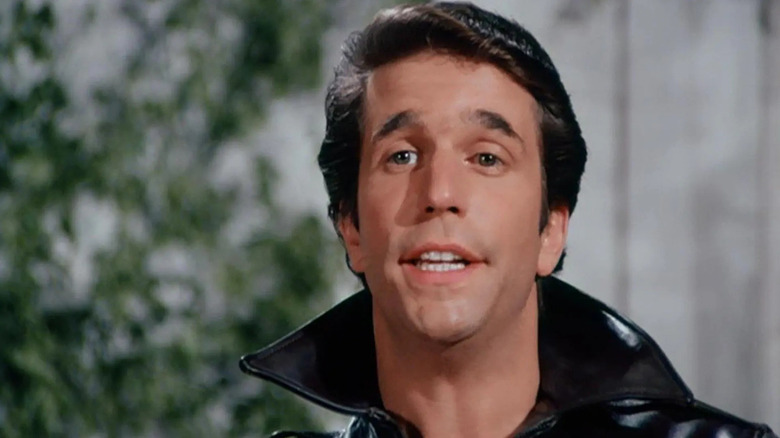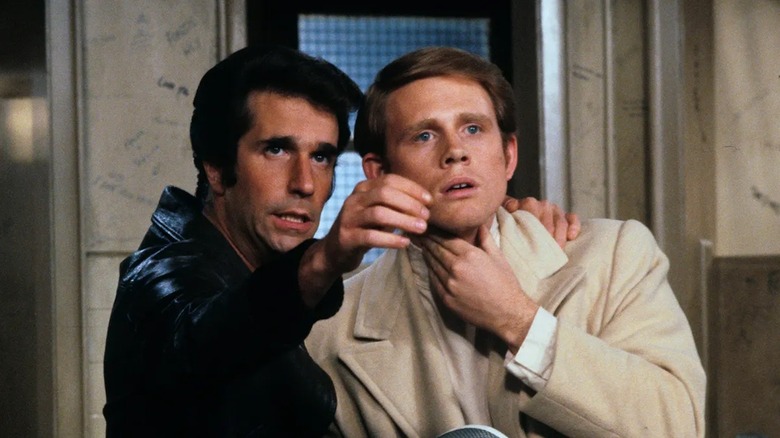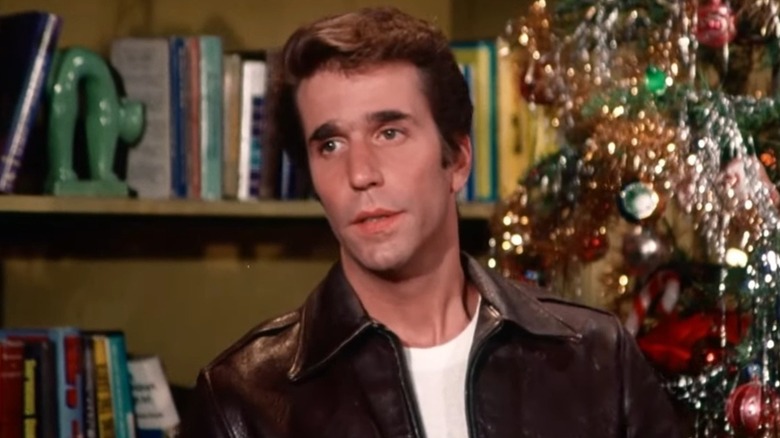We might obtain a fee on purchases created from hyperlinks.
Garry Marshall’s sitcom “Completely happy Days” supplied ABC with a welcome rankings enhance when it premiered as a mid-season substitute on January 15, 1974. To say its success was shocking could be to disregard the blockbuster elephant within the room that was “American Graffiti,” George Lucas’ coming-of-age comedy that tore up the field workplace the yr prior by exploiting Child Boomer nostalgia for rising up amid the rise of rock-and-roll and cruising tradition within the Nineteen Fifties and ’60s. Many members of this era had reached parenting age and, as such, welcomed any alternative to flee from their day jobs and child-rearing and keep in mind their carefree days of sucking down milkshakes at their native diner and slamming cash into the jukebox.
Commercial
Whereas “Completely happy Days” was a rankings hit at first, rating quantity 16 within the Nielsen rankings after its first season, the present encountered some severely surprising viewership turbulence when it obtained direct time-slot competitors from the “All within the Household” spinoff “Good Instances.” Abruptly, the favored sequence that had vaulted Henry Winkler to tv stardom because the cool, kind-hearted greaser Arthur “Fonzie” Fonzarelli was struggling to remain within the Nielsen’s high 50. ABC sounded the alarm and let Marshall know {that a} third-season renewal hung within the stability.
Marshall, who broke into the enterprise as a 26 yr previous author on “The Jack Paar Present,” dug deep into his bag of tips and got here up with one important stylistic adjustment that may, if nothing else, give every episode a surge of power. The community had different notes for Marshall, a few of which he shot down. However his instincts and collaborative spirit helped save a cultural establishment from an incredibly abrupt cancellation.
Commercial
Relatively than make Fonzie the star, Completely happy Days made him a part of the Cunningham household
The stereotypical community government method to saving a troubled present is to establish which parts of a given sequence appear to be working and push them to the fore. Within the forged of “Completely happy Days,” there was little doubt that Winkler’s Fonzie was not only a breakout character but additionally a pop cultural sensation. He was cool, charismatic, and, within the context of the present, hilarious. ABC TV honcho Fred Silverman pushed to retitle the present “Fonzie’s Completely happy Days,” which might’ve presumably busted the present’s ostensible protagonist, Richie Cunningham (Ron Howard), right down to a supporting character and, maybe, relegated your entire Cunningham household to recurring standing.
Commercial
Ron Howard pushed again towards this. The showbiz veteran, who’d been mentored for the higher a part of a decade by Andy Griffith, may maintain his personal with meddling fits. He advised them in no unsure phrases that he would stroll from the all of the sudden struggling sequence in the event that they turned it right into a star automobile for Winkler. Happily for Howard and the well being of the present, Winkler was on the identical web page as his co-star.
Within the newly launched guide “50 Years of Completely happy Days: A Visible Historical past of an American Tv Basic,” authors Brian Levant and Fred Fox Jr. keep in mind Winkler selflessly pleading with the ABC brass to not make him the solitary star of the sequence. In response to Fox, “Henry advised them, ‘No, no, you do not get it. The present is about my relationship with the household. You are taking me away from the household, you do not have a lot.’ And Barbara Marshall [Garry’s sister] advised us that if the title had modified, Garry Marshall himself would have left.”
Commercial
ABC backed down, which allowed Marshall to construct on the household theme that may energy the sequence by way of 11 seasons. “As a substitute of spinning Fonzie off,” mentioned Levant, “Marshall deepened his integration into the Cunningham household by having him transfer into an residence above their storage, actually and symbolically giving him a seat on the dinner desk. It gave him a purpose to be much more concerned with their household. Fairly easy fixes once you have a look at it, and the viewers went nuts.”
And Levant may say this about “the viewers” as a result of “Completely happy Days” made one different main change to offer the sequence a jolt of life.
Completely happy Days was filmed in entrance of a dwell studio viewers
Marshall knew one sure-fire technique to jumpstart the flagging power of “Completely happy Days” was to borrow a trick from the sitcom model of “The Odd Couple,” for which Marshall had written earlier than he developed “Completely happy Days.” Like that present, “Completely happy Days” started its life as a single-camera sitcom with no viewers. Marshall gambled that transitioning to a three-camera format with a dwell studio viewers may kick the present into overdrive.
Commercial
If you happen to’ve watched “Completely happy Days,” that the wildly responsive studio viewers was virtually a personality on the sequence. They exploded with applause and whistles when Fonzie made his entrance and unfold the love to only about all the fundamental gamers. When the present was cooking, you would sense the constructing enthusiasm of a fan base that, in line with Levant and Fox, lined up as soon as per week outdoors of the Paramount lot to hopefully assure themselves a seat within the studio. “Changing into an audience-driven present unleashed the actors’ personalities,” mentioned Levant. “Underneath Jerry Paris’ course, the third season, the fourth season —they simply sizzled with power.”
This made “Completely happy Days” really feel like an occasion. If you happen to weren’t tuned in, you had been lacking out. And if Marshall hadn’t made the aforementioned alterations, all of us would’ve missed out — which could’ve thrown a wrench into Robin Williams’ profession.
Commercial




